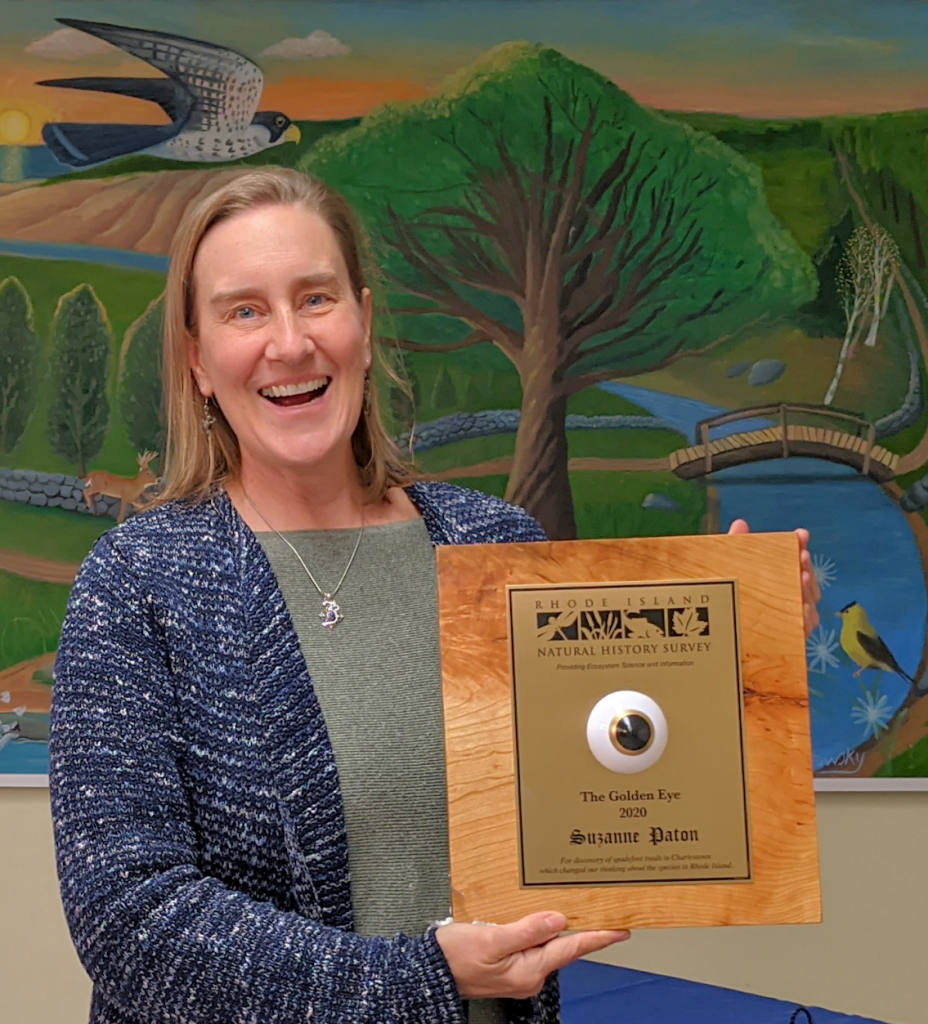
A Golden Eye Award recognizes a naturalist for reporting an extraordinary field find—a new species for Rhode Island, a rare or otherwise unusual species, an invasive species, or some other natural historical phenomenon.
The award recognizes not just luck, though luck plays a part in many good field finds, but the exercise of the best naturalists’ skills: perseverance, identification, biological and ecological knowledge, curation and record keeping, and communication.
The Golden Eye is also to encourage people to report their interesting finds for the benefit of our collective knowledge. To paraphrase one board member, “Some people get lucky, a few people make their own luck through hard work, and only a very few people work hard, get lucky, know how lucky they are, and take the time to share what they found. Those are the people we want to recognize with the Golden Eye Award.”
Natural History Survey staff and directors can nominate someone for a Golden Eye and the award is voted on by the Board of Directors.
Recipients of the Golden Eye Award
2023 Silas Claypool for his discovery of Boletus billeae in Rhode Island, and other mycological accomplishments.
2021 The Braz Family (David, Amy, and Allyson) for noticing and reporting a blue green frog in Cumberland. Read about the discovery and see a picture of the frog in the fall 2021 issue of the RI Naturalist.
2020 Suzanne Paton for her discovery of a new population of spadefoot toads in Rhode Island and Bill Sharkey for his discovery of five-lined skinks in Rhode Island.
2016 Aaron Hunt for his energy and initiative identifying over 1,300 species, mostly arthropods, on Block Island and submitting over 5,500 images of them to bugguide.net.
2015 The Zabel Family for discovering mosquito fish (Gambusia holbrooki) in Dundery Brook, Little Compton.
2014 Dale Denelle for discovering and reporting a beluga whale (Delphinapterus leucas) in Narragansett Bay.
2012 David Prigmore for “rediscovering” and reporting the State Endangered diamondback terrapin (Malaclemys terrapin) on Rhode Island’s South Shore.
2011 Ray Hartenstine for discovering, and accurately identifying, the invasive Oriental shrimp (Palaemon macrodactylus) in the Providence River estuary.
2010 Mandy Gaudreau for finding, and describing, the distribution of chytrid fungus in Rhode Island. The fungus has been linked to population declines and even localized extinctions of numerous amphibian species.
2009 Doug McGrady finding, and documenting, over a dozen rare plant sites in the state.
2008 Matt Ricker for finding the first water chestnut (Trapa natans) in Rhode Island, a highly invasive freshwater plant.